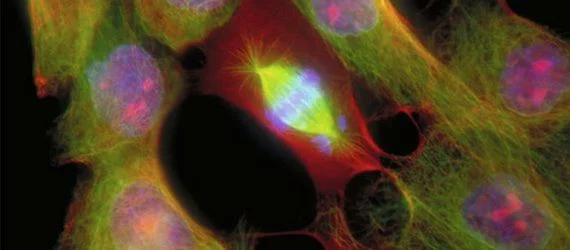According to a recent study conducted by scientists from the Manchester Cancer Research Centre and published in ‘Clinical Cancer Research’, cancer patients’ treatments could be tailored to their personal needs by using their tumour’s genetic make-up in order to evaluate whether additional drugs could benefit their radiotherapy programme.
It is known that tumours with lower levels of oxygen (hypoxia) have a tendency to respond less well to radiation therapy. Reducing hypoxia is possible via the administration of several agents, however these are not prescribed to patients as a standard. The measurement of oxygen levels in a patient’s tumour prior to radiotherapy would allow doctors to specifically determine which patient would benefit from hypoxia reducing treatment.
Previous investigations of hypoxia have included the examination of certain genes’ expression, and on this occasion, Manchester researchers have identified a genetic profile for tumours that should indicate the overall level of oxygenation. The study was conducted on patients suffering form bladder and larynx cancer who underwent either standard radiotherapy or radiotherapy with the addition of two agents, which in combination are known to increase oxygenation: nicotinamide and carbogen.
Tumour samples for 26 genes were tested and classified as more or less hypoxic. The next step was to analyse whether this hypoxia score related to the results of treatment.
Professor Catharine West, the research project leader, explained the study’s goal was to identify ways of predicting how patients will respond to different treatments. Personalising a patient’s tumour therapy was the future, and according to Professor West this method will improve survival rates and decrease side effects through the avoidance of treatments that were unlikely to work on an individual’s tumour.
The group found that for laryngeal tumours, those classed as more hypoxic saw a significant benefit from receiving additional agents as well as radiation therapy. In bladder cancer however, patients with tumours of higher oxygen levels did not benefit from adding extra agents.
Professor West went on to say that a clinical trial starting in December will test how the hypoxia score works in the in patients with head and neck cancer, and concluded: “I have studied ways of measuring hypoxia in tumours for many years so this is a very exciting finding that could help us optimise how we use radiotherapy to get the best outcome for patients.”
Source: Alpha Galileo
7 November 2013
Latest Articles
Cancer, Tumours, genes, hypoxia
According to a recent study conducted by scientists from the Manchester Cancer Research Centre and published in ‘Clinical Cancer Research’, cancer pati...


![Tuberculosis Diagnostics: The Promise of [18F]FDT PET Imaging Tuberculosis Diagnostics: The Promise of [18F]FDT PET Imaging](https://res.cloudinary.com/healthmanagement-org/image/upload/c_thumb,f_auto,fl_lossy,h_184,q_90,w_500/v1721132076/cw/00127782_cw_image_wi_88cc5f34b1423cec414436d2748b40ce.webp)







